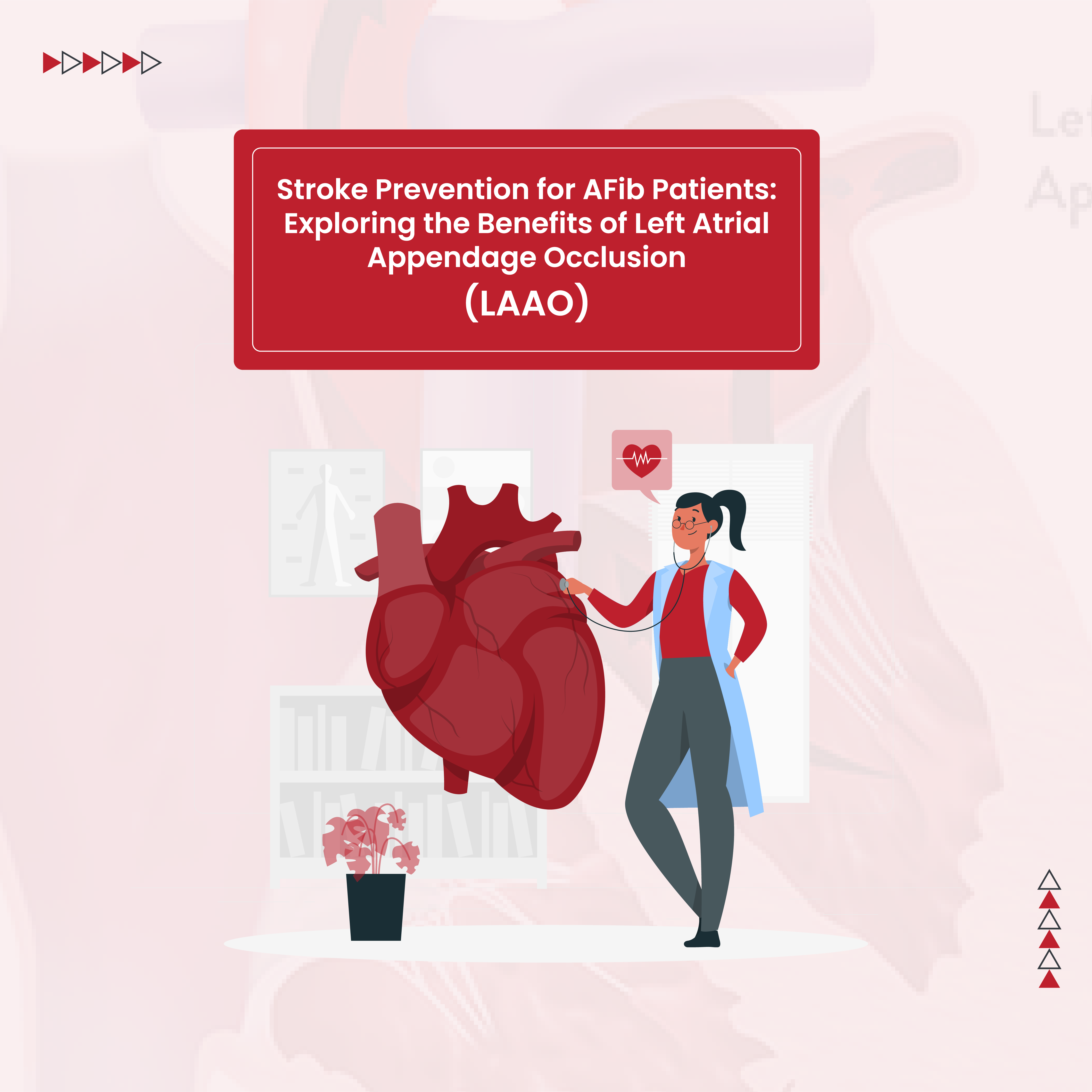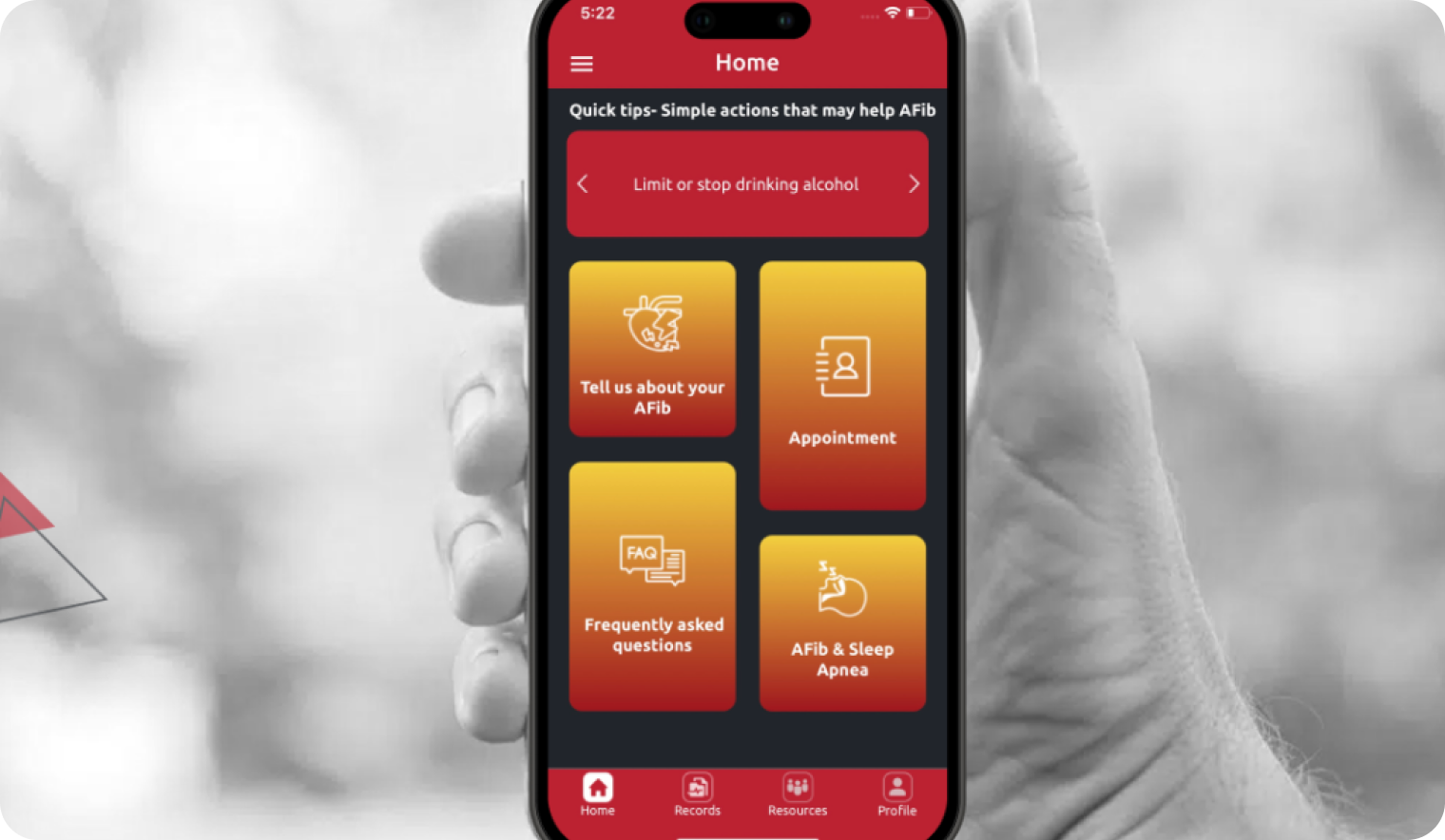Atrial fibrillation (AFib) is a chaotic, abnormal heart rhythm (arrhythmia). It can cause symptoms of palpitations, fatigue, shortness of breath, chest pain, and decreased exercise capacity and can have a significant impact on quality of life. Strong negative emotions such as anxiety, stress, and anger have been associated with atrial fibrillation (AFib). There appears to be a correlation between anxiety and AFib and over 40% of people with AFib also have a diagnosis of anxiety and/or depression, which is higher than the incidence of anxiety or depression in the general population.
People with atrial fibrillation often report higher levels of stress and anxiety but the relationship between these emotional states and AFib is not fully understood. Regardless of the mechanisms underlying the connection, having atrial fibrillation and managing stress are interrelated, and treating anxiety is an important component of AFib management.
Can Heart Arrhythmia Be Caused By Anxiety?
Anxiety, especially when experienced frequently or chronically, creates a hypervigilant state that puts additional strain on our health. The association between stress and AFib is likely multifactorial with negative emotional states having direct and indirect effects that increase atrial fibrillation.
Direct effects of anxiety and stress on AFib include:
- Increased sympathetic nervous system activation. High-stress situations, anxiety, and anger all increase sympathetic nervous system (fight-or-flight) activation which causes acute changes in circulation, heart rate, and blood pressure. In addition, a fight-or-flight state triggers a release of stress hormones. This environment, especially if it is a chronic state, creates a toxic milieu for the heart.
- Increased systemic inflammation. Stress, anxiety, and depression have been associated with increased levels of systemic inflammation. This increased inflammation can have negative effects on the heart which increase the risk of atrial fibrillation.
Anxiety can be an indirect trigger for AFib through:
-
- Decreased health behaviors. People living with anxiety, depression, or chronic stress are more likely to:
- Make poor dietary choices. Eating a healthy diet takes time, effort, and preparation which can seem out of reach if you are under significant stress.
- Lead a sedentary lifestyle. Despite the numerous health benefits of regular physical activity, people in the United States have become increasingly sedentary. Living with chronic stress, anxiety or depression can exacerbate this problem.
- Excessive alcohol intake. Unfortunately, alcohol is often used as a stress management tool. However, having atrial fibrillation and managing stress with alcohol will likely only make your atrial fibrillation worse. This can, in turn, contribute to worsening stress, anxiety, or depression.
- Smoking. Similar to alcohol, people use smoking as a stress management tool.
- Decreased health behaviors. People living with anxiety, depression, or chronic stress are more likely to:
-
- Increased incidence of AFib risk factors. As healthy behaviors decrease, the incidence of AFib risk factors like high blood pressure, heart disease, sleep apnea, heart failure, obesity, and diabetes all increase. Unhealthy behaviors like smoking and excess alcohol intake are AFib risk factors in and of themselves.
Can Anxiety Lead To Heart Problems?
Anxiety’s direct and indirect effects on the heart that contribute to atrial fibrillation are also associated with an increased risk of heart disease. For example, anxiety exerts indirect effects on AFib by contributing to AFib risk factors like high blood pressure, diabetes, obesity, and smoking. In addition to increasing the risk of heart rhythm disorders, like AFib, these risk factors also increase the risk of heart disease.
Interestingly, it is not just anxiety and stress that have been linked to atrial fibrillation. Studies have also found an association between AFib and negative personality traits, like anger and hostility, and environmental stressors, like pollution and work stress.
Can Extreme Stress Cause Atrial Fibrillation?
A relationship between stress and atrial fibrillation has been observed in various studies since the mid-1900s. In 1964, an increased incidence of new-onset atrial fibrillation was reported amongst healthy Air Force servicemen after an acute anger or stress episode. A small study that was published in the Annals of Internal Medicine in 1968, found that 27% of AFib episodes were attributed to emotional stress. Additional studies since the 19060s have noted similar findings.
How Do I Deal With AFib Anxiety?
Stress, anxiety, sadness, and anger can trigger atrial fibrillation but atrial fibrillation can also cause anxiety. People with very symptomatic, intermittent (paroxysmal) atrial fibrillation report anxiety every time they have an irregular heartbeat because they worry it means they are about to have another ‘AFib attack’. In addition, a chronic disease, like atrial fibrillation, can lead to anxiety and depression due to the uncertainties and stress that are naturally associated with having a chronic disease.
If you have AFib anxiety, there are many things you can do to help manage this anxiety. You may feel overwhelmed by AFib treatments and medications and be interested in trying lifestyle modifications before starting a medication to treat the anxiety. The great thing about lifestyle modifications is that they also help improve other areas of your life. This can contribute to greater levels of happiness and overall quality of life. Increased happiness can have a positive impact as was demonstrated in a study on lifestyle interventions for AFib that found that study participants reported 85% fewer episodes of paroxysmal atrial fibrillation on ‘happy days’.
The protective impact of positive emotions on AFib was also supported by the Women’s Health Study (WHS), which studied 30,000 female nurses for over 20 years. In the WHS, women who reported greater levels of happiness and optimism were less likely to have been diagnosed with atrial fibrillation.
There have been a variety of studies investigating atrial fibrillation and the benefits of managing stress. Some lifestyle interventions that could be helpful if you have AFib include:
 Yoga. Yoga combines low-impact physical activity, meditation, and breathing techniques. It has been shown to be beneficial for people with anxiety, depression, high blood pressure, AFib, and those interested in overall heart health. The ‘YOGA My Heart’ study found that people who participated in twice-weekly yoga classes for 3 months reported significant improvement in their atrial fibrillation, anxiety, depression, and high blood pressure. In fact, 23% of the study participants who had a history of AFib had no atrial fibrillation during the 3 month study period. The exact mechanisms by which yoga impacts atrial fibrillation are not fully understood but likely stem from yoga’s beneficial effects on blood pressure, systemic inflammation, and stress hormones.
Yoga. Yoga combines low-impact physical activity, meditation, and breathing techniques. It has been shown to be beneficial for people with anxiety, depression, high blood pressure, AFib, and those interested in overall heart health. The ‘YOGA My Heart’ study found that people who participated in twice-weekly yoga classes for 3 months reported significant improvement in their atrial fibrillation, anxiety, depression, and high blood pressure. In fact, 23% of the study participants who had a history of AFib had no atrial fibrillation during the 3 month study period. The exact mechanisms by which yoga impacts atrial fibrillation are not fully understood but likely stem from yoga’s beneficial effects on blood pressure, systemic inflammation, and stress hormones.- Meditation. Mindfulness meditation is the practice of being present in the moment, and aware of the surroundings and activities. It may include breathing exercises and observing thoughts and feelings as they arise without judgment. In 2017, the American Heart Association issued a scientific statement in support of meditation as an adjunct to medical cardiovascular risk reduction. Meditation can decrease anxiety and has long-lasting effects on the brain and nervous system. Meditation can also be beneficial for smoking cessation, improved blood pressure control, better blood sugar regulation, stress management, and heart disease prevention.
- Acupuncture. Acupuncture involves the insertion of tiny needles at specific locations on the body. In addition to being a prominent component of traditional Chinese medicine, it is widely used to treat pain, manage stress, and for overall wellness. Acupuncture has been associated with decreased AFib recurrence in patients with a history of paroxysmal and persistent (continuous) atrial fibrillation.
- Therapy. Counseling can be helpful for people with atrial fibrillation who have anxiety, depression, or insomnia. Cognitive-behavioral therapy, acceptance commitment therapy, and positive psychology are just 3 examples of therapy modalities used in the management of anxiety. Therapy modalities like cognitive behavioral therapy, positive psychology, and motivational interviewing have all been shown to be beneficial for people with atrial fibrillation who have anxiety or depression. Therapy can help patients with AFib experience fewer AFib symptoms and improvements in quality of life.
- Tai Chi and Qigong. Tai Chi and Qigong are ancient Chinese martial arts that combine gentle physical activity and flowing sequences with meditation, breathing exercises, and imagery. They have both been shown to decrease anxiety, blood pressure, depression, inflammation, and levels of stress hormones.
- Get enough sleep. Adults need 7 to 9 hours of high-quality sleep per night. Not getting enough sleep decreases our coping mechanisms and worsens anxiety. The quality of your sleep also matters. If you snore, wake up feeling tired, take naps during the day, or have had someone tell you that sometimes you stop breathing when you sleep you may have sleep apnea which can have a significant negative impact on your sleep quality and overall health. Untreated sleep apnea is associated with a 4 fold increased risk of atrial fibrillation. Sleep apnea also contributes to anxiety and depression. If you think you may have sleep apnea, talk to your healthcare provider about getting tested.
- Lead an active lifestyle. Physical activity is good for your heart and your mind. People who engage in regular, moderate-intensity physical activity have a lower risk of atrial fibrillation. When you exercise, the brain releases endorphins and other natural chemicals that work to decrease anxiety and improve your sense of well-being.
- Limit alcohol intake. Excess alcohol intake makes atrial fibrillation worse which will only make AFib anxiety worse. If you are going to drink alcohol, women are advised to drink no more than 1 alcoholic beverage per day and men should limit it to no more than 2 drinks per day.
- Have fun…Spend time with people you enjoy doing activities you enjoy. People with a healthy social support network report a greater sense of connectedness, and reduced levels of stress, depression, and anxiety.
Which Antidepressant Is Best For Cardiac Patients?
Depression and anxiety are common in patients with heart problems and AFib patients are no exception. If you have heart disease or heart rhythm problems it is important to take care of your mental health. This may include an antidepressant in addition to healthy lifestyle interventions. When choosing an antidepressant it is important to choose one that is safe for use with heart disease and that does not interact with your heart medicines. Common antidepressants that are safe for patients with heart problems include:
- Sertraline (Zoloft)
- Fluoxetine (Prozac)
- Paroxetine (Paxil)
- Mirtazapine (Remeron)
Beta-blockers are a type of medication used to treat atrial fibrillation. While they are not antidepressants, beta-blockers can also be helpful for anxiety because they decrease the body’s physiological response to stress. A study published in 2019 in the journal Heart Rhythm found that beta-blockers helped decrease the incidence of AFib in people with a history of anxiety or anger-triggered AFib.
Anxiety, stress, and negative emotional states can all contribute to atrial fibrillation. In addition, atrial fibrillation can be very anxiety-provoking for some people. However, there are lifestyle interventions and medications which can help minimize anxiety’s negative impact on AFib. In addition, research is ongoing to enhance our understanding of the relationship between anxiety and AFib to help guide future interventions and treatment recommendations.









